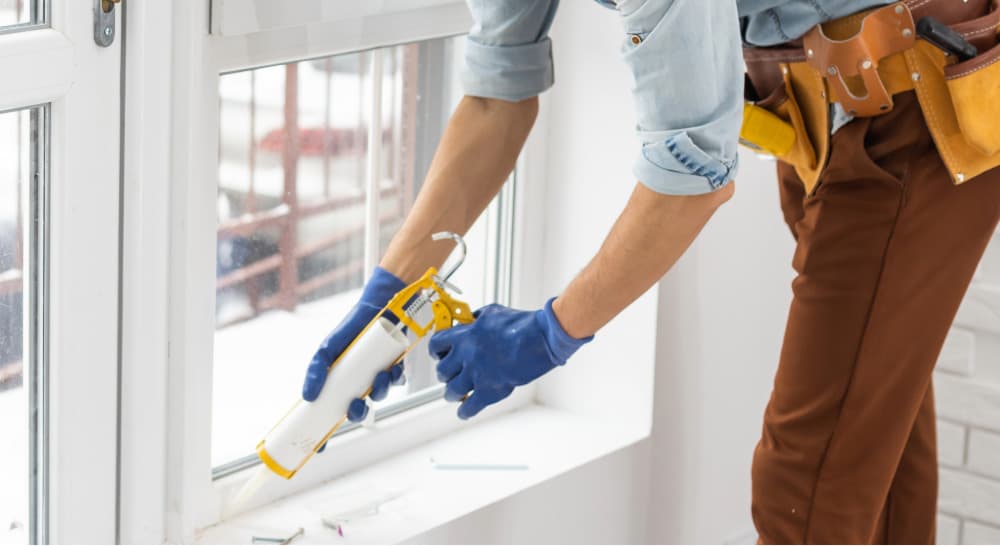When it comes to maintaining your home, one small detail can make a big difference: caulking. During a house inspection in Minneapolis, caulk (or the lack of it) is one of the key details that can reveal how well a home has been maintained. Proper caulking helps seal gaps, improve energy efficiency and prevent moisture damage, but it’s also one of the most commonly misused materials in a home. Knowing where caulk belongs—and where it doesn’t—is essential for keeping your home in good condition.

Where Caulk Should Be Used
Caulk acts as a protective barrier against water, air and pests. The most common areas that benefit from caulking include:
- Windows and Doors: Caulk around window and door frames helps seal out drafts and moisture, improving comfort and reducing energy bills. Over time, old caulk can dry out and crack, so regular inspection and replacement are important.
- Kitchens and Bathrooms: These high-moisture areas need watertight seals around sinks, bathtubs, showers and backsplashes. Silicone-based caulk works best here since it’s resistant to mold and mildew.
- Exterior Gaps and Cracks: The exterior of your home can develop small gaps where siding meets trim, or around vents and utility penetrations. Sealing these spots helps prevent water intrusion and discourages insects and rodents from finding their way inside.
- Baseboards and Trim: Applying caulk where trim meets the wall can help create a smooth, finished look while blocking air leaks.
Where Caulk Should NOT Be Used
While caulking can solve many problems, there are situations where it can actually create them. For example:
- Between Roof Flashing or Shingles: Caulk is not a substitute for proper roofing materials. Using it in these areas can trap water and lead to leaks or rot.
- Weep Holes in Brick or Siding: These small openings are designed to let moisture escape from behind the walls. Sealing them can trap water and cause structural damage.
- Around Moving Parts: Avoid caulking around windows or doors that open and close, as it can interfere with their operation.
A professional house inspection from AmeriSpec can identify where caulking is missing, deteriorating or improperly applied. Our inspectors help homeowners understand which areas need attention and provide guidance for safe, effective repairs. Small maintenance details like proper caulking can protect your home from costly water damage and improve energy efficiency for years to come. Give us a call today at 952-854-5110 or contact us!


